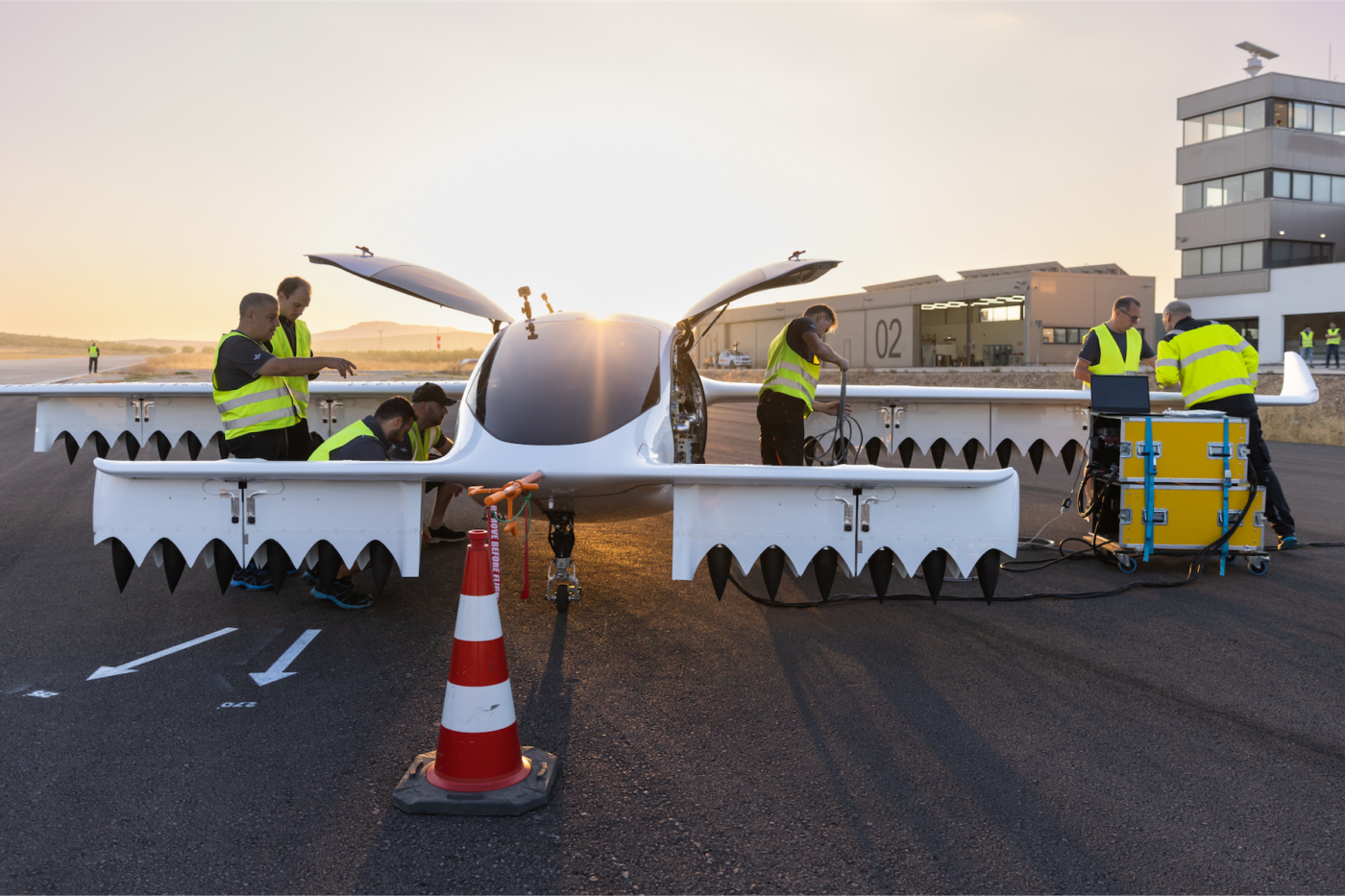Germany plans air taxi test routes from 2026
The German Federal Ministry for Digital and Transport (BMDV) wants to make Germany a leading location for the development and operation of drones and electric flying taxis (eVTOL). Specifically, it published a timetable for Advanced Air Mobility (AAM), which can serve as a guideline for operators.
It will be implemented in four phases by 2032. Initially, the first test routes will be set up by 2026, followed by the designation of geographically limited AAM areas by 2028. By 2030, these areas will be expanded to include regional transport, and finally, nationwide AAM operations are planned by 2032.
The strategy also envisages the establishment of vertiports, i.e. special take-off and landing sites for air taxis that take off and land vertically. A pilot qualification programme will be set up, safety aspects clarified, a legal framework created, and more. New route concepts are also planned.
Further prospects for air taxi developers: The ministry wants to promote innovations in the AAM sector to strengthen Germany as a centre of technology. That includes support for research projects and close cooperation with industry and research institutions. Specifically, the ministry intends to set up AAM real-world laboratories in the coming year, which will be dedicated to topics such as the safe integration of eVTOL and UAS into existing transport infrastructures, the creation of the infrastructure required for eVTOL operations and the development of integrated safety systems. The BMDV also intends to award the contract for a research project to develop the key components for the construction of vertiports in German cities as early as the beginning of 2025.
The goal is to promote an attractive investment environment to support the development of AAM in Germany. That includes incentives for companies and investors, as well as the provision of funding. The Ministry even intends to organise an AAM investor conference.
Federal Transport Minister Volker Wissing is convinced that AAM is a technology for everyone. “AAM will not be an elite project for business travellers but will benefit society as a whole. Especially as transport drones and eVTOL will also be used in regions that are currently difficult or impossible to reach using conventional means of transport,” he writes in the strategy paper.
Recently, it seemed air taxis were not politically popular in Germany. After the government denied the desired state guarantee, air taxi developer Lilium filed for insolvency under self-administration in November. And Lilium’s competitor Volocopter, which had also hoped for state aid, may be sold to the Chinese car manufacturer Geely.
However, Germany is under pressure not to miss out. As the ministry emphasises in its strategy paper, promising eVTOL manufacturers in the US and Asia are being financed by government support measures. Nevertheless, the strategy paper does not mention Lilium and Volocopter once. However, it should also be mentioned that the state guarantee for Lilium did not fail because of Wissing, who had campaigned for it, but because of the parliamentary budget committee.
bmdv.bund.de, bmdv.bund.de (strategy paper as PDF; in German)





0 Comments